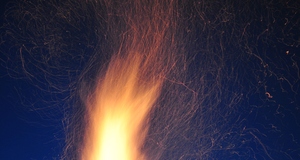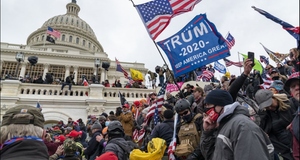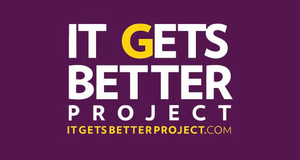Featured Article:Human Rights and Radical Social Change: Liberalism, Marxism and Progressive Populism in VenezuelaHuman Rights and ChávismoIn regards to democracy and human rights, there are several pivotal areas of Chávismo that warrant concern. As highlighted earlier, populism heralds a large mass democratic movement that makes an effort to include the voices of marginalized sectors of the population that could not be done by traditional politics. Relying on mass rallies and constant calls to the voting booth, Chávismo displays all the characteristics of this type of populism. Mass rallies are a frequent occurrence in Chávez’ Venezuela and since his election in 1998, not a year has gone by in which an important referendum or recall or election was put to popular vote. As highlighted earlier, these mass calls to the voting booth are an intricate part of legitimizing populist discourse because it justifies changes as a result of democratic mandate. But the limitation of this is two fold. Firstly, due to the charismatic leadership of Chávez and the resulting soft-personality cult and lack of an alternative, it can be said that people vote on the basis of loyalty instead of leadership qualities. Secondly, the constant calls for voting distract from other key issues facing the country. It is hard to focus on more physical manifestations of struggle when the polarized political discourse comes to the fore every 6 months at the voting booths instead of in everyday life, where micro-solutions are found for common peoples problems.59 But it would be a mistake to see this as an aberration instead of an inherent aspect of populism and Chávismo. Chávez needs the constant democratic mandates to bring about the changes he wants, if not only because his ideas are constantly being altered but also because it allows him to justify changing traditional institutions and circumventing traditional practices, the “rules of the game,” in the name of a “direct link” with “the people” who voted for him.As identified earlier, this is a problematic aspect of populism. The direct link--the leader as the manifestation of the popular will--creates a certain level of arrogance. With Chávez this was highlighted by a climate in which criticism is frowned upon and this resulting in a top-down management style. It is within this context that a disregard for the rule of law, political pluralism and democratic checks and balances can be noted in several features of Chávismo. Following the original premise of his election, Chávez largely discredited the institutions associated with the previous regime by called attention to their corruption and failure to account for the demands of the marginalized sectors of society. Once in office, as noted through the aforementioned two stages, Chávez applied the elementary populist discourse of “alien elements”--corrupt politicians, oligarchic elites, agents of imperialism, etc.--to justify the circumvention of traditional democratic procedures and institutions through the guise of manifesting the “popular will” as determined through the mandates of the voting booth. This tendency is best exemplified by the method through which the 1999 Constitution came into being; Chávez’ campaign pledge to elect a constituent assembly and overhaul the nation’s democratic institutions. Controlled by a 92% Chavista majority, thanks largely to a boycott of the elections by oppositional members, the constituent assembly moved quickly to claim extra-legal authority to re-found Venezuelan democracy.60 It proceeded to increase the size the judiciary to include more judges (sympathetic to Chávez) and shut down the congress in order to convoke new elections to “re-legitimize” public officials at every level of the political system.61 As such, having more than a two-thirds majority in Congress, the Chávistas had the ability to undertake a vast restructuring of the political system. With a two-thirds majority congress, a sympathetic and reformed judiciary, and the lack of voiced opposition in any democratic institution, there was little blocking the radical change many Chávistas hoped to bring to Venezuela and with this more or less domination of all aspects of governance, a wide variety of important changes were made to Venezuelan society during the first stage of the Chávez presidency, all of which cannot be noted here, that have continued and expanded in the second. It is not the changes made through the new constitution, the subsequent enabling laws and referendums, and the use of socioeconomic policy that requires attention seeing as how the effectivity, moral stature or necessity of these changes is up for debate. What is important to highlight is how these changes came about. As mentioned earlier, if the legal order can be circumvented through presidential decrees and popular democratic mandates on a reoccurring basis, there is little room for an understanding of “law” and regulations to take hold and the threat of general confusion sets in. This constant “changing of the rules” is a component of populism that may convey a radical element, but there is no doubt that a requisite part of a stable society is a rule of law and if it is constantly changing, or if people constantly expect it to change, then one can hardly expect them to know how to, or try to, follow it. Furthermore, as regards to political pluralism, while many members of the Chávismo movement see the opposition as highly corrupt, fetters upon radical change and undeserving of attention, if not “evil alien elements,” there is little doubt that any true democracy must at least make an effort to include all voices. The centralism of Chávez, the distrust and patronage issues following the coup and strike, and the general control of government by Chávez supporters does not bode well for such an actuality. Moreover, these issues also emphasize the importance of highlighting the effect of Chávismo upon the checks and balances of a democratic state. With the congress, judiciary and presidency all under the control of a single political proclivity, such checks and balances can hardly be expected to function in the way they are originally intended to. It is in this context that the claims of human rights abuses are made. Chávismo sees itself as a radical, emancipatory political project and ideology and thus follows the logic of the Marxist theory of human rights to the extent which a certain strong-handedness, accompanied by a rejection of the foundation of human rights in the traditional, previous status quo, is necessary to usher in a new socioeconomic system. In opposition, detractors of Chávismo and the project underway in Venezuela base their criticisms and claims on a belief that only certain institutions can guarantee the security of human dignity that thus see what is happening in Venezuela in terms of opposition to a political project and ideology. These two groups, detractor and supporters of the Chavismo ideology and project, make up the content of the human rights discourse surrounding Venezuela. It is important to keep in mind that as all states in one form or another commit, what are considered today, human rights violations, the important aspect of either accusation or defense of such claims is the viability of the political project and ideology of the position from which they are made. Like South Africa in the 90’s, Venezuela is currently the focal point of radical, progressive social change in the world and thus embroiled in this classic controversy. But how does the human rights discourse function in practice? What is the purpose and result of the pragmatic application of claims and counterclaims to human rights? Accusations of Violations: Human Rights WatchWhile there have been a myriad of accusations against the Venezuelan state by multiple parties, none stands out more vigorously and contentiously than a 2008 report entitled; A Decade Under Chávez: Political Intolerance and Lost Opportunities for Advancing Human Rights in Venezuela62, by the international non-governmental organization Human Rights Watch (HRW. The report focuses mainly on civil and political rights, highlighting the areas of political discrimination, the courts, the media and organized labor. The organization lays claim to be objective and neutral in its application of criticism, but as was pointed out earlier such a claim is an impossibility. In its application of liberal human rights theory, HRW, and organizations like it, are engaging in what was earlier identified as the a priori elimination of a radical, progressive political project. This section will focus on how HRW uses specific criticisms to do this. HRW, in its report, makes sure to state that it does not address all the pressing human rights issues facing [Venezuela] today, many of which pre-date the Chávez presidency. Rather, it focuses on the impact that the Chávez government's policies have had on institutions that play key roles in ensuring that human rights are respected: the courts, the media, organized labor, and civil society.63 This statement makes two connected assumptions. One; that human rights are the benchmark for human dignity, and two; that the institutions associated with human rights are the only way to ensure this human dignity. Three of the institutions mentioned are directly associated with liberalism and capitalism. The court system is essentially an aspect of liberal legalism; a forum in which peoples redresses against their rights can be heard under the limitations of the law. Organized labor only exists in so far as it is necessary to mitigate the intrinsic struggle between capital and labor within market based liberal capitalism. The idea of civil society is a creation of liberal, market capitalism. The media is the only subject here that need not be associated with liberalism per se, but instead the idea of partiality, neutrality and objectivity that liberalism purports to defend. Since this is both a heavily discussed topic in the HRW report and the exception to the analysis of human rights as products of liberalism, it is a good place to start. The media is premised on liberalism in so far is it is a product of private property, the idea of neutrality and the right of freedom of speech and expression. The rights to freedom of speech and expression exist only inasmuch as they are defended by the institution of the court. Moreover, the objectivity of the media is undeniably questionable while the tenets of liberalism support the system of private property which has developed into effectively freedom of expression as freedom of influence for those with the most money. Thus, any challenge to this system of affairs--the freedom of speech, which in the case of Venezuela basically amounts to the freedom to undermine the government and incite violence, the system of private property that allows a small group of people to own the infrastructure of the media, and an open position that objectivity is impossible under the conditions of liberal capitalism--that introduces a radical political project is seen as violating human rights. HRW’s report section on organized labor makes the claim the claim that; “The [Chávez] government has systematically flouted its obligations under the conventions of the International Labour Organization.”64 What this fails to ask is whether or not the International Labor Council (ILO) is an institution whose word should be held as preeminent and whether or not the ILO is simply a global liberal institution. The ILO, for instance, declared that the 2002 oil strike was legitimate even though it was largely orchestrated by management and decidedly politically motivated, not based on labor disputes.65 The claim that rights are being violated because organized labor may be changing or disappearing frankly eliminates the possibility of a government being so pro-labor that unions no longer need to exist or unions themselves turning into government (utopian ideas, but not entirely unfeasible theoretically). In the case of Venezuela, the HRW report sees only an old a decrepit labor movement rife with corruption and fails to see that many workers have joined new, pro-government unions that are less independent but more inclined to associate with the state because they see it as fighting for its interests. The need for, or even possibility of, an independent labor union is a question outside the scope of this paper, but it is enough to say that a hopeful position would be one in which the future no longer required labor unions, since their sole purpose is to fight against the tide of exploitation instead of ending it. HRW’s report is objectively biased to this position and sees unions as institutions of a healthy liberalism that needs no reforming. The same argument, of independence, applies to HRW’s report on the courts of Venezuela. Like labor unions, an independent judiciary is a fundamental aspect of liberalism, necessary to ensure that it function the way it is supposed to. The courts hold a specifically important position within liberal human rights theory since all redresses against a subject (claims of human rights violations) must be taken to such a forum if they are to be heard and mitigated. HRW’s report calls out the Chávez government for packing the courts following the 2002 coup and compromising its separation from the executive.66 While it could be argued that an impartial court is impossible (it will undoubtably favor, or rule based on, a system that supports it, not actively planning overthrowing and replacing it) that is beside the point. HRW defends the idea of the judiciary in and of itself as an institution of human rights and liberalism and the “packing” of the courts as automatically wrong even if it is a means towards an end. For instance, could a court “packing” be used to dilute power away from a small group to a larger one? Could different institutions, such as the community councils in Venezuela, eventually replace some of the functions of the court, thus making it superfluous in some aspects? These are questions and possibilities that HRW eliminates through its report. When HRW discusses civil society in its report, it makes an effort to underline the importance of independent rights organizations and non-governmental organizations. By claiming that the Venezuelan government is excluding these organizations, subjecting them to unwarranted investigations and pursuing legislation that would further allow the government to interfere, it wants to ensure the distinction between civil society and the state. The idea of civil society in and of itself assumes a distinction between it and the state--an idea that should not be considered, nor need it be considered, as a transhistorical absolute but instead as an aspect of a certain political and economic system. When HRW makes it a point to declare that subversion of civil society is purely a violation of human rights, it fails to account for the possibility that the government could be working in the interest of merging civil society with the state in order the transcend its inherent contradiction. By looking at these areas of HRW’s report, organized labor, civil society, and the media, its position of liberal human rights theory can be seen as the a priori elimination of a radical, progressive political project.Continued on Next Page » Suggested Reading from Inquiries Journal
Inquiries Journal provides undergraduate and graduate students around the world a platform for the wide dissemination of academic work over a range of core disciplines. Representing the work of students from hundreds of institutions around the globe, Inquiries Journal's large database of academic articles is completely free. Learn more | Blog | Submit Latest in Political Science |
















